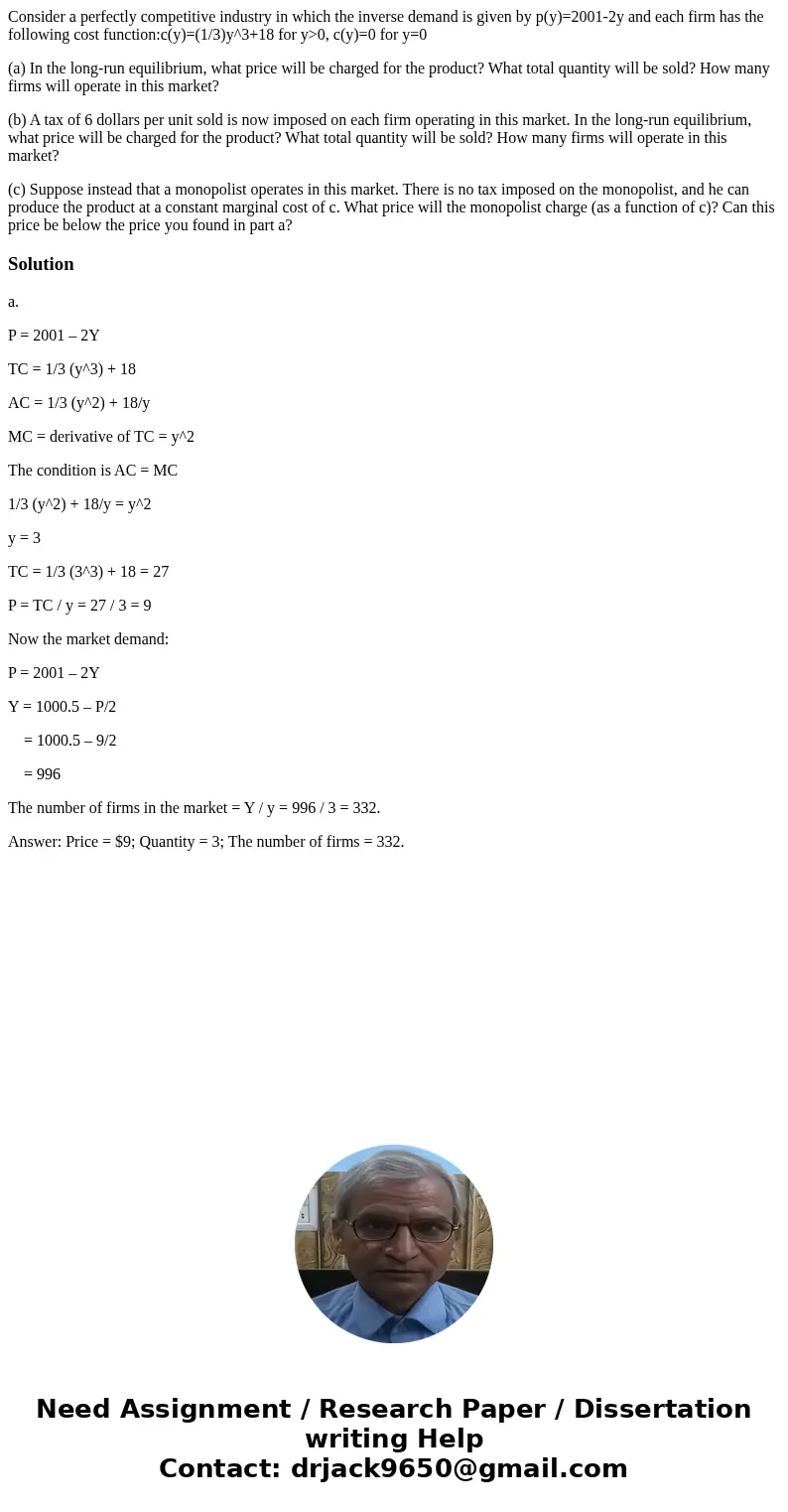Consider a perfectly competitive industry in which the inver
Consider a perfectly competitive industry in which the inverse demand is given by p(y)=2001-2y and each firm has the following cost function:c(y)=(1/3)y^3+18 for y>0, c(y)=0 for y=0
(a) In the long-run equilibrium, what price will be charged for the product? What total quantity will be sold? How many firms will operate in this market?
(b) A tax of 6 dollars per unit sold is now imposed on each firm operating in this market. In the long-run equilibrium, what price will be charged for the product? What total quantity will be sold? How many firms will operate in this market?
(c) Suppose instead that a monopolist operates in this market. There is no tax imposed on the monopolist, and he can produce the product at a constant marginal cost of c. What price will the monopolist charge (as a function of c)? Can this price be below the price you found in part a?
Solution
a.
P = 2001 – 2Y
TC = 1/3 (y^3) + 18
AC = 1/3 (y^2) + 18/y
MC = derivative of TC = y^2
The condition is AC = MC
1/3 (y^2) + 18/y = y^2
y = 3
TC = 1/3 (3^3) + 18 = 27
P = TC / y = 27 / 3 = 9
Now the market demand:
P = 2001 – 2Y
Y = 1000.5 – P/2
= 1000.5 – 9/2
= 996
The number of firms in the market = Y / y = 996 / 3 = 332.
Answer: Price = $9; Quantity = 3; The number of firms = 332.

 Homework Sourse
Homework Sourse